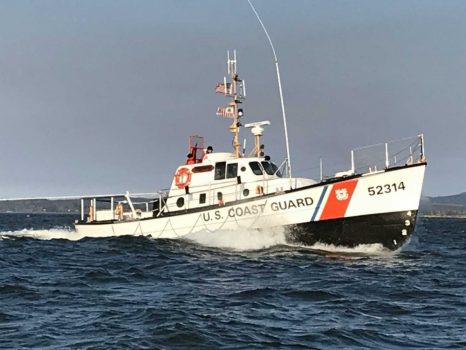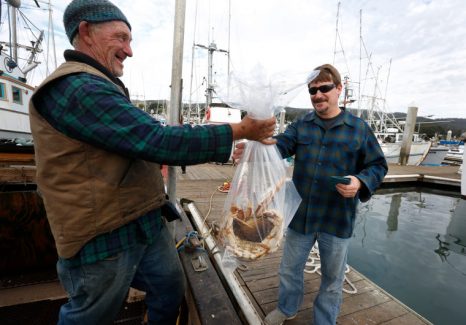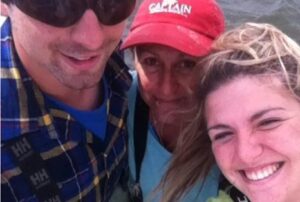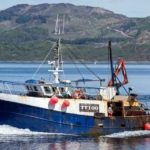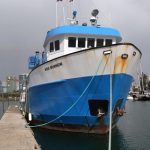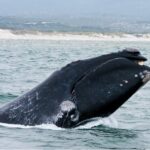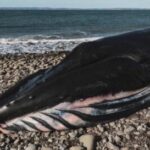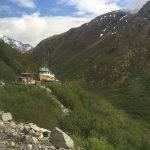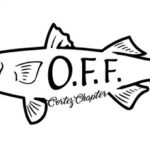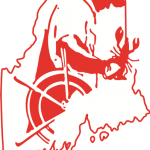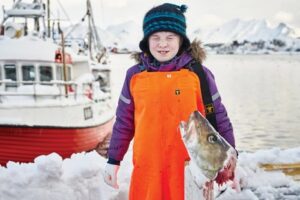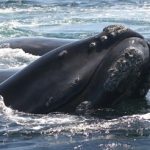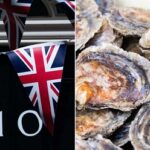Category Archives: Pacific

Cantwell’s legislation provides regulatory relief for smaller vessels like crab and salmon boats
WASHINGTON, D.C. – U.S. Senator Maria Cantwell (D-WA) introduced the Fishing and Small Vessel Relief Act (S.2194) to extend protections for fishermen and small vessel owners from adhering to costly requirements that do not tangibly protect or improve water quality for vessels of their size. An EPA study found that incidental discharges from these small vessels do not generate a significant threat to our waters. The bill will extend a current moratorium that exempts fishing vessels and vessels under 79 feet from incidental discharge permitting requirements mandated by the Environmental Protection Agency (EPA). These vessels have been continuously exempt since 2008 under a temporary moratorium as they do not pose a serious environmental risk. click here to read the story 21:35
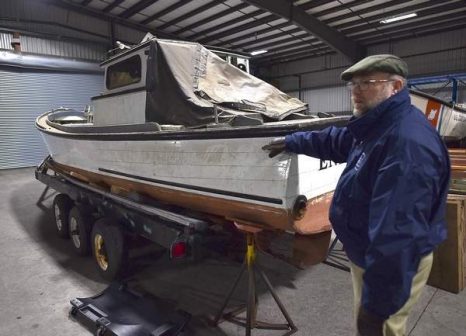
A Columbia River gillnetter joins historical collection at maritime museum
After plying the Columbia River for more than half a century, the fishing boat Endeavor is getting a spot in the Columbia River Maritime Museum’s growing hall of boat history. The boat came to the museum from David and Tim Fastabend, who inherited the vessel from their father, Don, along with Astoria Marine Construction Co. David Fastabend said his father went fishing in the Endeavor on weekends and at night when he wasn’t working on boats. “He fished, picked nets all by himself,” David Fastabend said. “He fished until he was 75.” click here to read the story 09:47
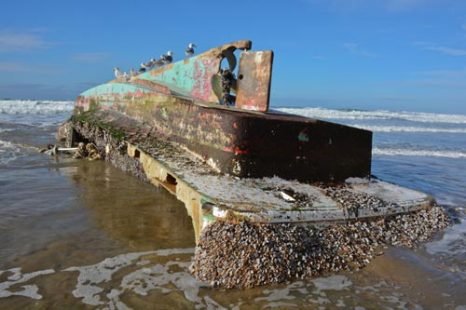
Japanese Fishing Boat Washes Up on N. Oregon Coast
Tempests and tides have brought a good number of remarkable things to the Oregon coast in recent weeks, and the latest wild find was a Japanese fishing boat that washed ashore at Arcadia Beach State Recreation Site just south of Cannon Beach. The 38-foot vessel came up on the beach on December 2, and almost immediately state officials were there in various capacities, include salvage personnel and a biologist checking for invasive species. Photo’s, click here to read the story 12:40
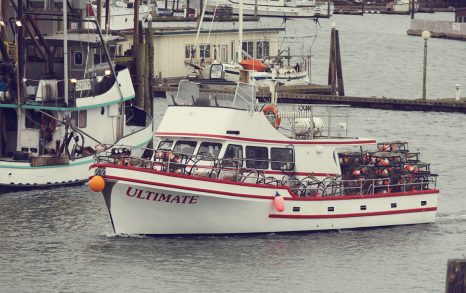
Westport Marina ranked 10th in the nation for commercial seafood landings
Westport Marina was 10th nationwide in seafood landings in 2016 with 108 million pounds of crab, salmon, hake and other seafood landed, according to statistics compiled by National Oceanic and Atmospheric Administration. Westport placed 14th in the nation in total value of seafood landed in 2016, with a little more than $59 million in product. That is down from $65 million in 2015, due to lower prices in 2016 for many species. “We are extremely proud of our commercial fishing fleet and the hundreds of fishing and processing jobs they support in our region,” said Westport Marina Business Manager Molly Bold. “We are committed to providing the infrastructure, facilities and services our fishing industry needs to continue to thrive.” click here to read the story 07:25
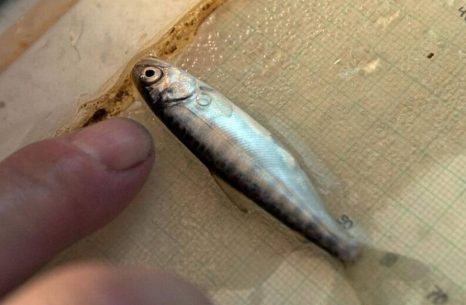
Research shows juvenile endangered California salmon use different rivers than expected
In a paper published online last week in the journal Biological Conservation, a team of California researchers revealed a surprising finding: Juvenile winter-run Chinook aren’t just using the Sacramento River as rearing habitat; after hatching, they also venture in large numbers into the river’s tributaries, including creeks that feed into it below Redding, as well the Feather and the American rivers. Winter-run Chinook are a distinct species of salmon that return each year to spawn and die in the Sacramento River near Redding. click here to read the story 11:16
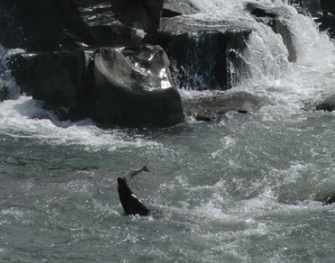
Dwindling winter steelhead are on their own again at Willamette Falls
With the first four dozen winter steelhead counted at Willamette Falls and scattered early catches reported in both the Clackamas and Sandy rivers, Oregon scientists, fish managers, anglers and others must helplessly hold their figurative breath. Sea lions, which chewed through as much as 25 percent of the dismal return of 2016-17 steelhead, pretty much have free rein this winter to repeat the carnage. “The impact, if left un-managed, will be pretty devastating,” said Shaun Clements, senior fish division policy advisor for the Oregon Department of Fish and Wildlife. click here to read the story 16:11
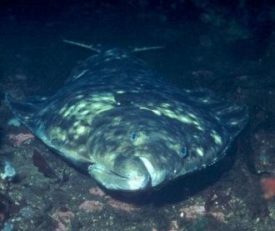
Pacific Halibut numbers could drop
Scientists monitoring halibut say there could be a decline in the bottom fish along the coast of the U.S. and Canada in upcoming years if the current level of fishing continues. The International Pacific Halibut Commission oversees management of the fish along the coast from Alaska to California. Commissioners had an interim meeting Tuesday and Wednesday, November 28-29th in Seattle and heard about this year’s catch and the latest estimates of halibut stocks. Scientists found fewer younger halibut in survey fishing done up and down the coast this year. click here to read the story 16:10
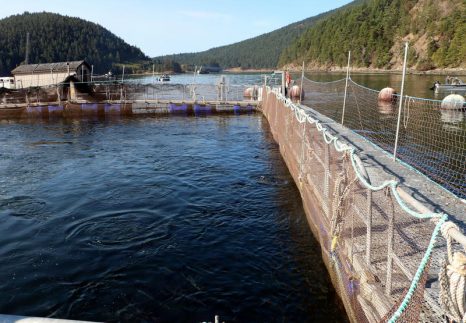
Puget Sound piracy leaves trail of (salmon) blood
Call it Puget Sound piracy. Thieves boarded a floating salmon farm a few saltwater miles from Anacortes on a Saturday night in September. In their wake, they left a trail of blood. Fish blood, that is. The thieves boated out to one of Cooke Aquaculture’s Atlantic salmon farms, a grid of 40-foot-deep net-pens ringed by a floating walkway bigger than a football field. They hauled away an undisclosed number of fish from two of the 10 pens. They killed more by turning off the farm’s air hoses that help oxygenate the water where the domesticated salmon swim by the thousands. click here to read the story 12:53
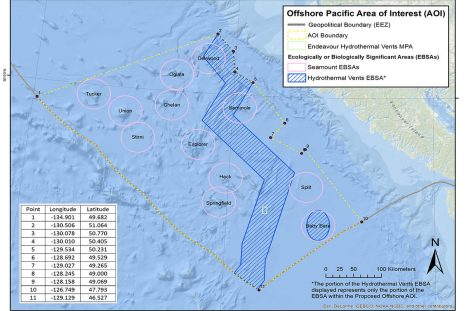
DFO talks huge offshore Vancouver Island Marine Protected Area
Alice Cheung, Oceans Program Regional Manager for DFO gave a presentation on Canada’s Marine Conservation Target’s initiative, where she addressed the proposed Marine Protected Area (MPA) at the Regional District of Mount Waddington’s (RDMW) board meeting on Nov.21. “My purpose here is to communicate how fisheries and oceans intend to meet Canada’s commitment,” said Cheung, adding she would discuss “what it actually looks like in the Pacific region and to seek your input as we move forward in the agenda.” click here to read the story 17:13
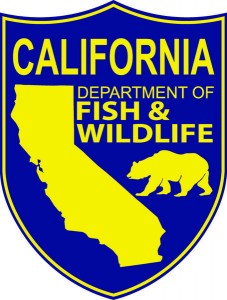
Commercial Dungeness Crab Season in Northern California Delayed Due to Crab Quality Testing
Due to poor crab meat quality test results conducted at the beginning of November, the Director of the California Department of Fish and Wildlife (CDFW) has issued a memo delaying the opening of the commercial Dungeness crab season in Fish and Game Districts 6, 7, 8 and 9 (Mendocino, Humboldt and Del Norte counties) for a minimum of 15 days until Dec. 16, under authority of Fish and Game Code section 8276.2. Crab quality tests ensure that crab are filled out enough prior to harvesting and follow the testing guidelines established by the Tri-State Dungeness Crab Committee that is overseen by the Pacific States Marine Fisheries Commission. click here to read the press release 21:15
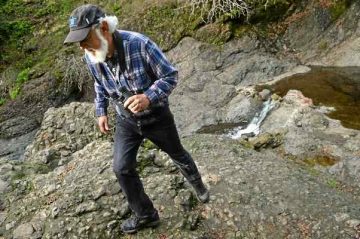
Lagunitas Creek gets odd visitor: pink salmon
A fish species rarely seen south of Washington state has turned up more than 700 miles away in Lagunitas Creek, part of what has been dubbed a strange beginning to the spawning season. In recent years attention on the Lagunitas Creek watershed has been focused on federally endangered coho salmon and threatened steelhead trout, with efforts made to restore habitat to help those fish. The fish come to the Marin watershed from the ocean each year to spawn. But this year the attention has been on two other species, which have made surprising appearances. click here to read the story 11:36
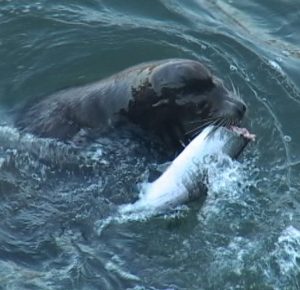
Oregon Eyes Killing Sea Lions to Save Steelhead Trout
Fish managers scrambling to gain approval to kill dozens of California sea lions feasting on threatened winter steelhead trout got a bump this week from a study blaming the creatures for taking food from orcas. But some say the effort is a misguided attempt to scapegoat natural predators for the human-caused decline of their prey. In 1999, about 15,000 winter steelhead passed Willamette Falls. In 2016, scientists with the Oregon Department of Fish and Wildlife counted just 512.,, “We’re looking at a threat of extinction posed by sea lions,” Shaun Clements, the agency’s senior fish policy advisor, told the Fish and Wildlife Commission at a meeting in September. click here to read the story 08:04
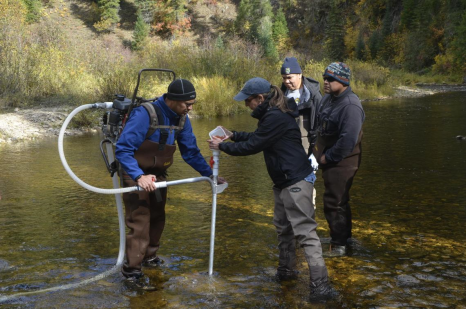
Nez Perce tribe hopes to spark return of chinook with artificial beds
The Nez Perce tribe is taking advantage of overproduction at the Clearwater Hatchery to seed some local streams with spring chinook redds – spawning beds or nests. Members of the tribe’s fisheries division have been busy placing 850,000 fertilized eggs into artificial nests in the beds of Newsome and Lolo creeks, where they have also done extensive restoration work. The process involves using special equipment to recreate the nests that female salmon laboriously create with their bodies and then injecting the eggs into the gravely cavities. It’s not the most efficient way to boost salmon runs, but tribal fisheries officials say it’s better than having the excess eggs go to waste. click here to read the story 16:41
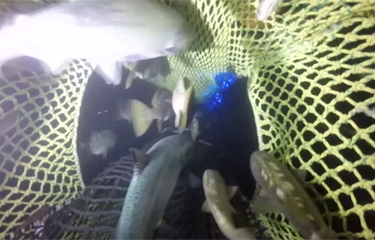
Net-mounted LED lights help reduce bycatch in Pacific hake fishery
LED lights can help reduce bycatch by aiding the escape of Chinook salmon from Pacific hake trawl nets, according to a study done by researchers at the Pacific States Marine Fisheries Commission and the Northwest Fisheries Science Center. The lights influence where salmon exit bycatch-reducing windows in the hake nets, and could increase the total number of salmon that escape, the researchers say. In a series of tests in 2015, the lights seemed to attract the Chinook salmon. During the tests, 86 percent of the salmon that escaped used the openings framed by LED lights. click here to read the story 15:48

Good Samaritans rescue 4 from fishing boat fire off Pillar Point Harbor
Four crewmembers from the commercial fishing vessel Ocean Gale were rescued by the crew of the commercial fishing vessel Smith Brothers #2, after a boat fire 13 miles southwest of Pillar Point Harbor. Fishermen aboard the Ocean Gale, a 37-foot vessel, contacted Coast Guard Sector San Francisco watchstanders at approximately 5 p.m., Monday, reporting a fire aboard their boat.,, Crews aboard four commercial fishing vessels, Alma, Mr. Morgan, Alicia Dawn and Smith Brothers #2, responded to the UMIB and diverted to the scene. click here to read press release 22:30
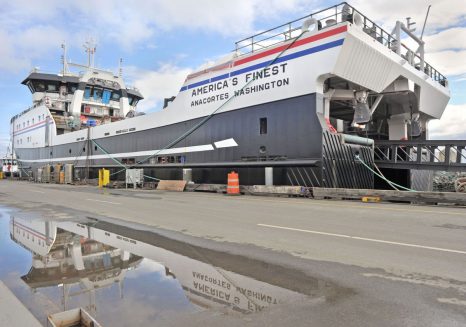
Mayors go to D.C. to lobby for Anacortes shipbuilder
The mayors of Anacortes and Mount Vernon traveled to Washington, D.C., last week to urge legislators to forgive a local shipbuilder’s mistake. In speaking to the state’s Congressional delegation, Anacortes Mayor Laurie Gere lobbied for a waiver that would allow a ship built in the city to be used in U.S. waters, thus protecting the jobs of those who work for the shipbuilder. America’s Finest, the vessel in question, was built by Dakota Creek Industries in Anacortes for the Kirkland-based company Fisherman’s Finest for use in the Bering Sea. click here to read the story 13:50
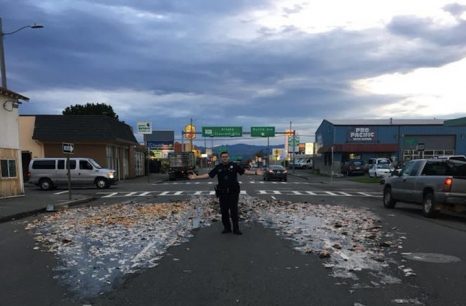
Good morning, Eureka! Fifth Street is Covered in Fish Guts
Tuesday morning traffic on Fifth Street near its intersection with M Street is restricted to one lane after a truck spilled a load of fish waste there. Eureka Police Department officers are on scene directing vehicles while they wait for heavy equipment to come mop up all the gross. “Consider an alternate route if traveling north this morning,” EPD recommends. photo’s, click here 11:06
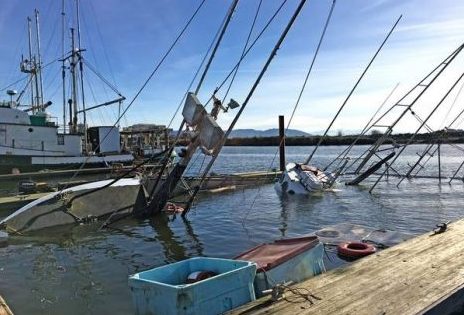
Tuna troller sinks in Ilwaco mooring basin
Authorities on Monday continued dealing with pollution concerns and making plans to raise the Lihue II, a 61-foot wooden fishing vessel that sank at her mooring at the Port of Ilwaco sometime Friday night or Saturday morning. A citizen reported the sinking to Long Beach Police at 10:14 a.m. Saturday. “Reporting party stated there was a boat that sunk; reporting party does not know if it was sabotage or what,” according to the Pacific County Dispatch media report. click here to read the story 10:28
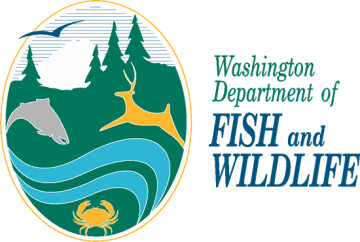
WDFW delays commercial crab fishery on Washington coast due to low meat content
State shellfish managers have delayed the opening of the commercial Dungeness crab fishery on Washington’s coast due to inadequate meat in crab shells. Recent testing indicates crabs along the coast do not have sufficient meat in their shells to meet industry standards for harvest. The fishery will be delayed until at least Dec. 16 to allow more time for crabs to fill with more meat. Contrary to an erroneous news report, WDFW did not delay the commercial crab fishery due to a harmful algae bloom click here to read the story 17:53
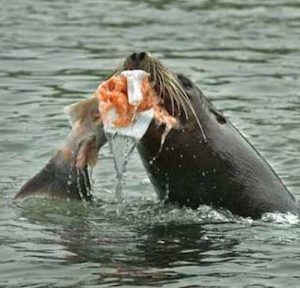
Endangered orcas compete with seals, sea lions for salmon
Harbor seals, sea lions and some fish-eating killer whales have been rebounding along the Northeast Pacific Ocean in recent decades. But that boom has come with a trade-off: They’re devouring more of the salmon prized by a unique but fragile population of endangered orcas. Competition with other marine mammals for the same food may be a bigger problem than fishing, at least in recent years, for southern resident killer whales that spend time in Washington state’s Puget Sound, a new study suggests. click here to read the story 07:43
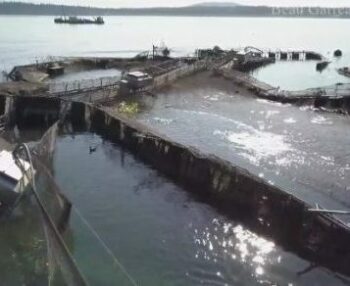
The science is in — salmon farms need to be out
The salmon-farm debate has come full circle with the recent escape of nearly 200,000 potentially invasive farmed Atlantic salmon 33 kilometres from B.C. waters in Washington state. Over the years, public outrages associated with this industry have unfolded like so many layers of a rotten onion: sea lice, viruses, organic pollution, 10 times the carcinogens in the flesh of farmed salmon versus wild, legal shooting of seal and sea lion “pests,” whales entangled in nets and anchor lines — and the list goes on. This is all unfolding against a backdrop of vehement objections from First Nations. click here to read the story 09:27
PAT NEAL: New threat to our threatened salmon – Here in the Pacific Northwest, there are 19 populations of salmon and steelhead listed as threatened under the Endangered Species Act. There are many reasons for this. click here to read the story 11:20
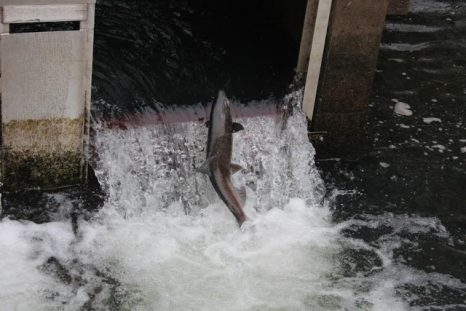
Record Chinook Salmon, Steelhead Returns Reported on Mokelumne River
For many years after Camanche Dam was built, the Mokelumne River, a major tributary of the San Joaquin River and the Delta, hosted small runs of Chinook salmon. The historic runs of steelhead after the construction of the dam averaged only 100 fish and no steelhead returned to spawn many years. But both steelhead and salmon runs have rebounded in recent years, due to a number of factors. In welcome good news for Central Valley salmon populations, the California Department of Fish and Wildlife (CDFW) and the East Bay Municipal Utility District (EBMUD) report record fall spawning returns of Chinook salmon and steelhead to the Mokelumne River, a tributary of the San Joaquin River.,, The hatchery has received 13,799 adult salmon to date—compared to 4,129 at this point last year—and is expected to break the record return of 18,000 in 2011. click here to read the story 20:33
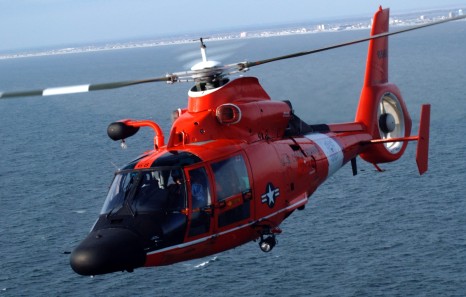
Bi-Partisan effort to keep open permanently Newport, Charleston Coast Guard air bases
“We remain extremely concerned about Coast Guard air facilities in the high-use ports of Newport, Oregon and Charleston, South Carolina,” the four lawmakers wrote Sen. John Thune (R-S.D.), chair of the Senate Committee on Commerce, Science & Transportation; the committee’s ranking member Sen. Bill Nelson (D-Fla.); Rep. Bill Shuster (R-Pa.), chair of the House Committee on Transportation & Infrastructure; and the House committee’s ranking member, Rep. Peter DeFazio (D-Ore.). click here to read the letter 13:09
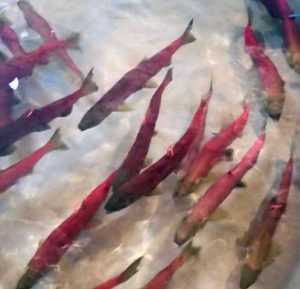
Experts: Idaho hatchery built to save salmon is killing them
A relatively new $13.5 million hatchery intended to save Snake River sockeye salmon from extinction is instead killing thousands of fish before they ever get to the ocean, and fisheries biologists in Idaho think they know why. The Department of Fish and Game in information released this week says water chemistry at the Springfield Hatchery in eastern Idaho is so different from that in the central region that the young fish can’t adjust when released into the wild. Idaho Rivers United, an environmental group, blasted the report as more reason for removing four dams on the lower Snake River that impede salmon click here to read the story 10:53
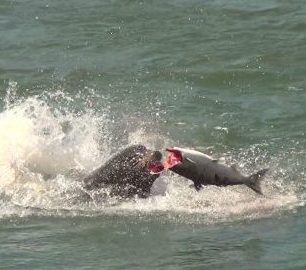
NOAA/NMFS seeks input on proposed sea lion removal at Willamette Falls
NOAA Fisheries is seeking public input on an application from the Oregon Department of Fish and Wildlife (ODFW) to remove, by lethal means if necessary, California sea lions preying on endangered and threatened salmon and steelhead at Willamette Falls on the Willamette River near Oregon City. The approach would be similar to the ongoing removal of sea lions preying on vulnerable populations of protected fish at Bonneville Dam on the Columbia River. Under the Marine Mammal Protection Act (MMPA), each application NOAA Fisheries receives for removing problematic sea lions must undergo independent consideration. info, click here to read the story 08:36
Herrera Beutler seeks aid, additional funding for declared fishery disasters
 Members of Congress from the state of Washington are asking the Office of Management and Budget to provide additional funding for declared fishery disasters statewide. Led by Rep. Jaime Herrera Beutler, R-Battle Ground, and Rep. Derek Kilmer, D-Artondale, 10 members of the state’s congressional delegation sent a letter to OMB Director Mick Mulvaney on Wednesday asking him to approve their request for supplemental appropriations, specifically for Washington’s commercial, recreational and tribal fisheries. click here to read the story 07:46
Members of Congress from the state of Washington are asking the Office of Management and Budget to provide additional funding for declared fishery disasters statewide. Led by Rep. Jaime Herrera Beutler, R-Battle Ground, and Rep. Derek Kilmer, D-Artondale, 10 members of the state’s congressional delegation sent a letter to OMB Director Mick Mulvaney on Wednesday asking him to approve their request for supplemental appropriations, specifically for Washington’s commercial, recreational and tribal fisheries. click here to read the story 07:46
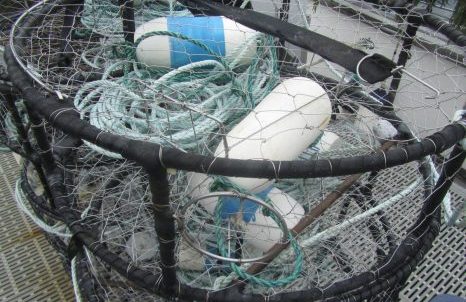
Oregon delays start of Dungeness crab season by more than 2 weeks
The traditional Dec. 1 opening of the commercial Dungeness crab season will be delayed until at least Dec. 16 along the entire Oregon coast as testing shows crabs are too low in meat yield.,, Crab quality testing in early November showed that none of the test areas met the criteria for a Dec. 1 opening. The delayed opening will allow for crabs to fill with more meat. click here to read the story 15:58
“Last year’s season opening was also delayed but still brought in the highest ex-vessel value ever ($62.7 million) with 20.4 million pounds landed, about 22 percent above the 10-year average,” the Oregon Department of Fish and Wildlifre said in a statement. click here to read the story
Washington state senator says he’ll file bill to ban Atlantic salmon farming
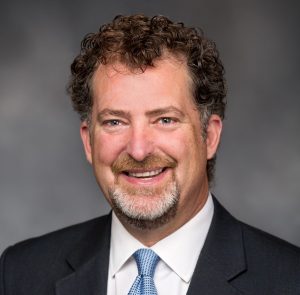 Under fire after a collapse and massive escape last summer, Atlantic salmon net-pen farming would be banned in Washington under legislation that will be filed by Sen. Kevin Ranker this coming session. The legislation would allow existing state leases for the eight Atlantic net-pen farms now operating in Washington to run out by 2025. No permits for new farms would be granted, and no renewals for existing leases would be allowed. The bill also would require state agencies that regulate net-pen farming to keep a tighter watch on operations. click here to read the story 13:30
Under fire after a collapse and massive escape last summer, Atlantic salmon net-pen farming would be banned in Washington under legislation that will be filed by Sen. Kevin Ranker this coming session. The legislation would allow existing state leases for the eight Atlantic net-pen farms now operating in Washington to run out by 2025. No permits for new farms would be granted, and no renewals for existing leases would be allowed. The bill also would require state agencies that regulate net-pen farming to keep a tighter watch on operations. click here to read the story 13:30






